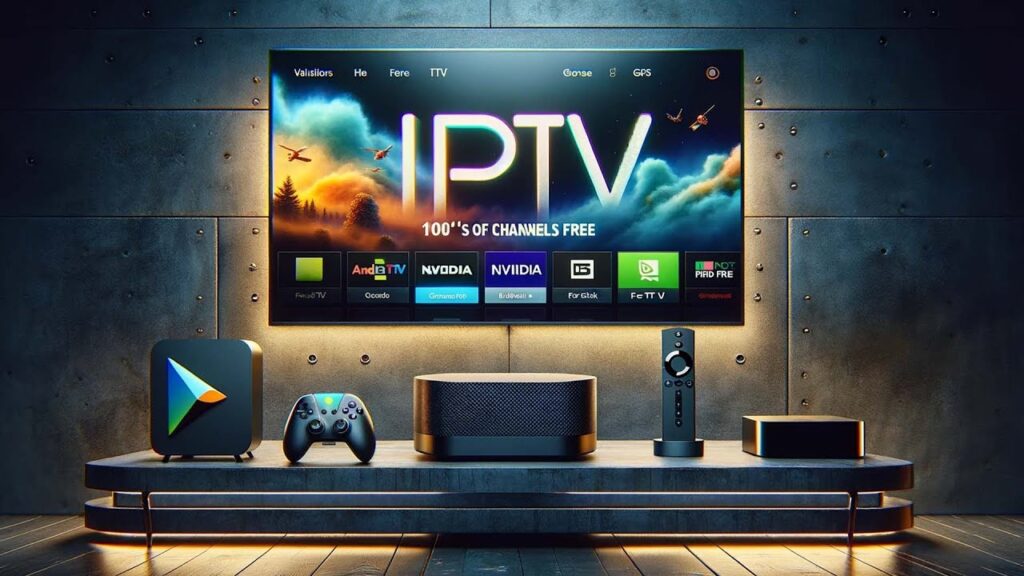In the ever-evolving landscape of media iptv france consumption, Internet Protocol Television (IPTV) has emerged as a groundbreaking technology reshaping how we access and enjoy television content. Unlike traditional broadcast or cable TV, IPTV utilizes internet protocols to deliver television programming over IP networks. This article delves into the evolution, benefits, challenges, and future potential of IPTV, highlighting its transformative impact on the media and entertainment industry.
The Evolution of IPTV
IPTV has its roots in the early days of internet streaming and digital video. Initially, it was a niche technology used primarily by tech enthusiasts and early adopters. However, as broadband internet became more widespread and video compression technologies improved, IPTV began to gain traction.
The early 2000s saw the advent of IPTV services offered by telecom companies, primarily focusing on delivering a handful of channels over the internet. The technology continued to evolve with the introduction of high-definition (HD) and ultra-high-definition (UHD) streaming, interactive features, and on-demand content. Today, IPTV encompasses a wide range of services, from live TV and video-on-demand (VOD) to interactive applications and personalized content recommendations.
Benefits of IPTV
- Flexibility and Convenience: IPTV offers unparalleled flexibility compared to traditional television. Users can access content on a variety of devices, including smart TVs, computers, tablets, and smartphones. This cross-platform compatibility allows viewers to watch their favorite shows and movies anytime, anywhere.
- Personalization: One of the standout features of IPTV is its ability to deliver personalized content. By analyzing viewing habits and preferences, IPTV services can recommend relevant shows and movies, enhancing the overall user experience.
- Interactive Features: IPTV platforms often include interactive features such as catch-up TV, pausing and rewinding live broadcasts, and integrating social media. These functionalities provide a more engaging and interactive viewing experience.
- Cost Efficiency: IPTV can be more cost-effective than traditional cable or satellite TV. Many IPTV services offer subscription-based models with customizable packages, allowing users to pay for only the channels and features they want.
- Global Reach: IPTV breaks down geographical barriers, enabling viewers to access content from around the world. This global reach is particularly beneficial for expatriates and international audiences seeking content from their home countries.
Challenges and Considerations
Despite its advantages, IPTV faces several challenges:
- Bandwidth Requirements: IPTV relies on a stable and high-speed internet connection. Users with limited bandwidth may experience buffering or reduced video quality, impacting the viewing experience.
- Content Licensing and Rights: Securing content licenses can be complex and costly. IPTV providers must navigate a web of licensing agreements to offer a diverse range of programming, which can affect service availability and pricing.
- Security and Piracy: IPTV services are susceptible to security issues and piracy. Unauthorized access to content and distribution of pirated streams can undermine the revenue and integrity of legitimate IPTV providers.
- Technical Issues: IPTV systems are dependent on technology infrastructure, and technical issues such as server outages or software glitches can disrupt service. Providers must invest in robust infrastructure and support systems to ensure reliability.
The Future of IPTV
The future of IPTV is promising, with several trends and innovations on the horizon:
- Advancements in Streaming Technology: Emerging technologies such as 5G and improvements in video compression will enhance the quality and speed of IPTV services. These advancements will enable smoother streaming experiences and support higher resolutions.
- Integration with Artificial Intelligence: AI and machine learning will play a crucial role in personalizing content recommendations and optimizing user experiences. Intelligent algorithms will analyze viewer preferences to deliver more relevant content.
- Expansion of Interactive and Immersive Content: IPTV is likely to see increased integration of interactive and immersive content, such as virtual reality (VR) and augmented reality (AR) experiences. These technologies will offer new ways to engage with media.
- Growth of Niche and Local Content: As IPTV continues to grow, there will be a greater emphasis on niche and local content. Providers will focus on catering to specific interests and regional preferences, creating a more diverse and inclusive media landscape.
Conclusion
IPTV represents a significant shift in the way we consume television and multimedia content. Its flexibility, personalization, and interactive features offer a compelling alternative to traditional broadcasting methods. While challenges remain, the continued evolution of IPTV technology promises to enhance the viewing experience and expand the possibilities of media consumption. As we look to the future, IPTV stands poised to play a central role in shaping the next generation of television.

